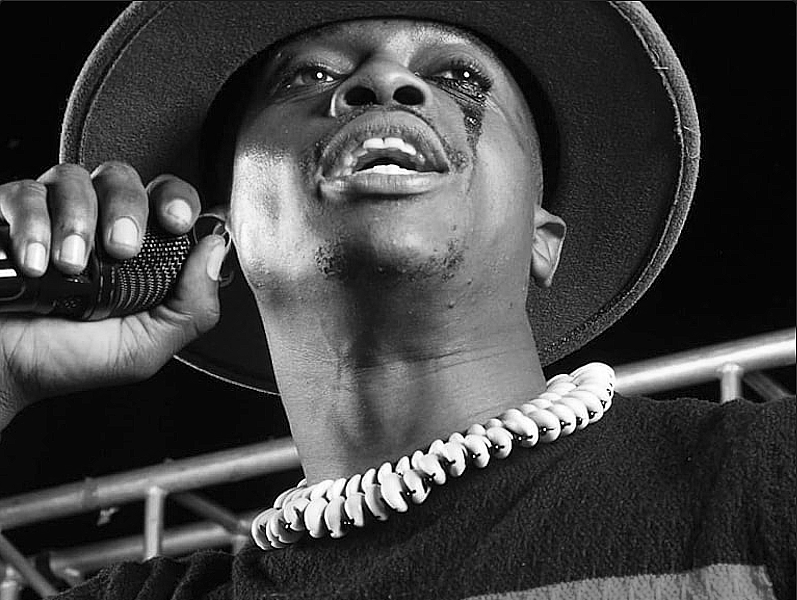The passing of rapper Atlasaone Bryn Molemogi, better known as ATI, has left Botswana mourning a voice that transcended music to challenge politics, gender norms, and silence itself
BRADLEY FORTUIN
The past two weeks have been a sad and significant loss for Botswana with the passing of Atlasaone Bryn Molemogi, known to many of us as ATI. There is no doubt that ATI was a spark that ignited a passion and fearless bravery within us. In a society where silence is too often rewarded and being different is shunned and punished, ATI dared to live loudly, to disrupt, to unsettle and to inspire. His voice was not confined to haunting lyrics or electrifying performances; with a soulful and spiritual essence, it carried into politics, gender norms and social struggles. Remembering him means more than nostalgia for his music. It means recognising him as a liberator who insisted on freedom of expression, freedom to live one’s truth and freedom to imagine a Botswana beyond fear and conformity.
Courage beyond the stage
ATI made it clear that fame was not his ultimate destination. His infamous mantra, ‘It’s not about me, it’s not about you; it’s all about the people,’ stripped celebrity ego and re-centred art, humanity, bothoas a tool for community. He insisted that music could be more than entertainment, it could be resistance and a form of collective healing.
Through his artistry and activism, ATI held up a mirror to Batswana and forced us to see the discontent we were living in. From youth unemployment to unaccountable politics, he articulated what many felt but were too afraid to say. The #KeNaLeATI movement was a declaration of belonging, solidarity, and daring to imagine new leadership. It was also metaphorically a #stimamolelo filled with warmth, passion, anger and renewal. In a country where politics is often reduced to polite consensus, ATI injected urgency. He showed young people that leadership does not always sit in Parliament, sometimes it stands on stage and sings truth to power. The lesson we must all take away from here is that courage does not wait for permission. ATI blurred the line between being an artist and an activist, between the concert hall and civic participation. He created a blueprint for Botswana on how culture can be political and how art can challenge oppressive authority without bowing to it.
Challenging masculinity and visibility
But ATI’s impact was not limited to politics. He disrupted something even more profound, which are Botswana’s rigid gender norms. Our society has long demanded that men perform a narrow, suffocating version of violent, emotionless, heteronormative masculinity. ATI refused! His style, his aesthetic choices, his refusal to conform to safe masculinity destabilised those expectations and threatened the pillars of patriarchy in Botswana.
In a country where being visibly queer and gender non-conforming still attracts scorn, ridicule and even violence, ATI’s defiance was revolutionary. He was not waving a rainbow flag but was carving out space for others to breathe. For queer communities, he demonstrated that visibility itself can be an act of survival. By refusing to shrink, he normalised expressive freedom. He created a cultural opening where art became a shield and that shield became hope that elevated us.
This is what intersectional liberation looks like. When the courage of one liberates the courage of many. ATI destabilised binaries not just through words but through presence. He dared to embody the possibility that Botswana could be more than dull, rigid scripts of heternonomative genders, sexuality and identities.
Living your truth is radical!
Botswana often prides itself on stability, but that stability can feel like a deafening silence. To live your truth here, whether as an artist, an activist or queer identifying, is still a radical act. Freedom of expression is guaranteed on paper, yet those who test its boundaries face backlash. ATI tested those boundaries every time he took the stage, every time he challenged authority, every time he showed vulnerability.
His life reminds us that liberation is not only political but personal. Self-acceptance in a society that constantly tells you to conform is a form of protest and ATI embraced that protest. He showed that one can simultaneously be vulnerable and powerful, broken and healing, and that these contradictions do not weaken us, but they make us whole. For many young Batswana struggling to accept themselves, whether because of one’s sexuality, disability or other forms of marginalisation, ATI’s unapologetic presence was a lifeline. He showed us that it is okay to embrace authenticity.
The unfinished work of liberation
Remembering ATI is not freezing him in memory as an icon. It is to continue his work. Playing his songs on the radio is not enough. True remembrance means embodying his refusal to shrink, his insistence on visibility and having the courage to disrupt.
ATI’s life and work resonate deeply in the face of these ongoing injustices. His insistence on living authentically and amplifying marginalised voices directly confronted the social stigma and violence that persist against LGBTIQ+ people in Botswana. Even though consensual same-sex relations were decriminalised in 2021, protections and societal acceptance lag and hate crimes, like the horrific attack on a young gay man who was raped, beaten up, murdered, burnt and left abandoned in Maun last week, highlight this gap. With queer bodies being seen as controversial and political suicide, the Ministry of Gender, Youth and Gender Affairs is yet to react to this horrendous crime. The struggle for liberation remains unfinished in all its dimensions. ATI stood for courage, self-expression and people-centred activism values, encouraging us to continue to confront these injustices, defend equal rights and continue the work of liberation he exemplified.
About the writer: Bradley Fortuin is a social justice activist focusing on the rights of LGBTIQ+ people in Botswana and the broader Global South.

